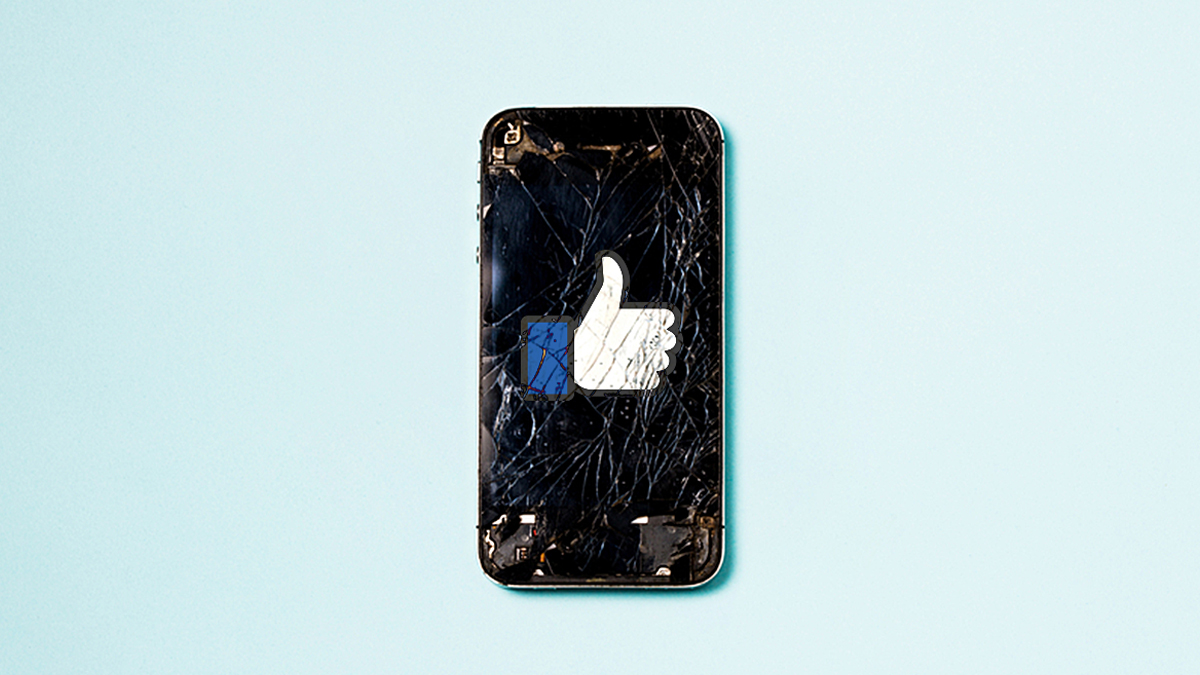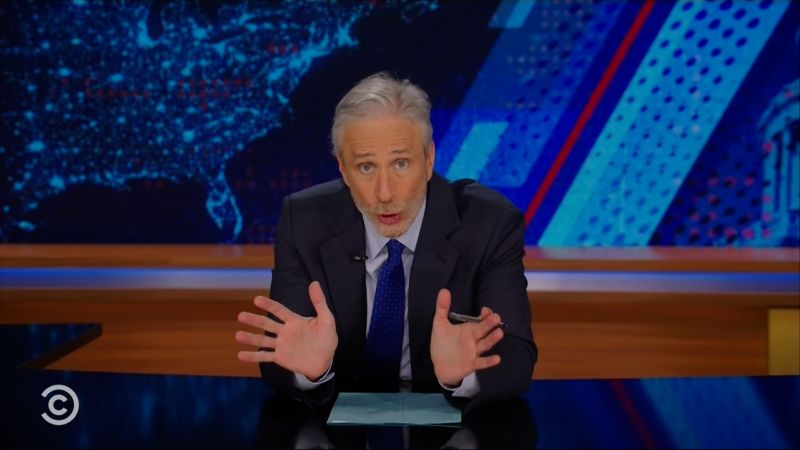Media
Breaking Up Facebook Won’t Fix Social Media

|
|
Executive Summary
There’s political pressure to break up Facebook, but that wouldn’t solve the problems that the social-media giant presents. To begin with, it wouldn’t even increase competition in the long run, because social-media platforms enjoy network effects, which always tip towards monopoly or near-monopoly. More importantly, it wouldn’t do anything to safeguard consumer privacy, protect election integrity, balance the need for free speech against the evils of hate speech, or slow the spread of misinformation. For those, we need structural reform.
The Social Dilemma is one of the hottest films on Netflix. For those who haven’t seen it, it’s a wake up call to the dangers of social media — and I’m a big fan. We need to focus attention on this issue; the alarm has been building since films like The Great Hack and books like Surveillance Capitalism and Zucked were published. My new book, The Hype Machine, starts where those movies and books leave off by asking: what can we do, practically speaking, to fix the social media crisis we find ourselves in?
One idea I discuss at length in the book is whether breaking up Facebook will fix the social media morass. Antitrust regulators are certainly eager to dismantle the world’s largest social network. Their argument for doing so cites a litany of real harms, including the erosion of privacy, the spread of misinformation and hate speech, the acceleration of political polarization, and threats to the integrity of elections. Competition, they argue, will force Facebook to fix these problems. However, ill-conceived antitrust action, without structural reform, will not only fail to solve them, it will make matters worse. To understand why, consider the economic logic of these businesses.
Social media markets tip toward monopoly because of network effects: The value of a networked platform is a function of the number of people connecting to it. As more people use the product, its value to everyone increases. The greater the number of people on a network, the greater its gravitational pull. The greater its gravitational pull, the greater the grip it has on current customers. Breaking Facebook up into its component parts might slow that process down — but it won’t change the fact that, in the long run, network effects create monopolies or near-monopolies.
The people running social media companies bolster the tendency toward monopoly by making it difficult for users to walk away: they make the their platforms incompatible with each other and keep an iron grip on the data we upload to them (and that they collect about us). If we leave Facebook or Instagram, we lose our pictures, our conversations, our very memories. We don’t want to give those things up — and we also don’t want to lose the relationships involved. These high-tech walled gardens, which are so difficult to leave, combine with network effects to tip these companies even further toward monopoly.
Creating competition in the social media economy is essential: imagine the positive effects for consumers if social media giants were competing to safeguard consumers’ privacy, for example. But while competition can help force platforms to compete for our attention with designs that protect our societal values, the market forces that push social media companies toward monopolies will remain even if Facebook is dismantled. Breaking up Facebook does nothing to promote the market conditions needed to sustain competition because network effects will simply push the next Facebook-like company into a dominant position. Breaking up one company won’t change the underlying market economics.
There’s a cost to getting this wrong. Network effects create substantial economic benefits for billions of people around the world. As those benefits depend on the connections we make through social media, dismantling the networks will reduce the benefits without addressing the economic forces that drive the social economy towards concentration. Economic measures like GDP and productivity growth don’t capture the consumer value that Facebook creates, because users don’t pay to be on Facebook. (And because they’re not captured, they’re easy for regulators to ignore.) But the value is real: researchers at MIT and Stanford have investigated how much people would need to be paid to give up Facebook; it turns out that ordinary people put a very high value on the service. The research estimates Facebook generates about $370 billion a year in consumer benefits in the U.S. alone. Now, imagine those benefits worldwide.
The antitrust case against Facebook ignores these economic conditions, and it does nothing to directly protect privacy, distinguish free speech from hate speech, ensure election integrity, or reduce fake news. In fact, it will make addressing these harms more difficult by creating more social platforms to regulate and oversee. Rather than politically expedient trust busting, we need structural reform — first to catalyze the competition that a breakup will fail to achieve and then to unwind the market failures wrought by the social economy, one by one. Let’s look at a few structural reforms that would helps us achieve the promise — and avoid the peril — of social media.
Making social networks interoperable and giving consumers the right to export their data. To foster competition, we need legislation that makes social media networks interoperable and allows consumers to take their data and their social networks to competing companies, as happens in the telecommunications industry. Number portability made cellular services more competitive: When the European Union insisted on the ability to take your mobile number, and thus your network of contacts who knew you by that number, to other services in the early 2000’s, the policy increased economic welfare by 880 million euros per quarter across 15 EU countries, accounting for 15% of the observed increase in consumer surplus from 1999 to 2006. Interoperability also leveled the playing field in chat messaging. When the FCC forced AOL to make AIM interoperable with Yahoo, MSN Messenger, and others in 2002, AOL’s market share in instant messaging fell from 65% to 59% one year later, to just over 50% three years after that. In 2018, AIM ceded the entire chat market to Apple, Facebook, Snapchat, and Google. Legislation like the bipartisan ACCESS Act would do the same for social media, forcing platforms like Facebook, Twitter, and Pinterest, to make their social networks interoperable and giving consumers the right to export their data.
Safeguarding election integrity. Congress should pass targeted legislation like the FIRE Act, the SECURE Our Democracy Act, and the Voting System Cybersecurity Act to harden our elections. In addition to fighting fake news, social media companies must make firm, verifiable, and enforceable commitments to make data available for research into social media’s effects on democracy. Risk-limited election audits should safeguard against attacks on our outdated voting systems. The details could be worked out in a bipartisan National Commission on Democracy and Technology.
Protecting privacy and data. Federal privacy legislation must harmonize ad hoc state policies and balance the moral, practical, and utilitarian importance of privacy with the need for data sharing to support investigative journalism, scientific research, commercial applications of machine learning, audits of election integrity, and the economic surplus generated by the advertising economy.
Attacking the spread of misinformation. To slow the spread of misinformation, the platforms must use algorithms, employees, and the crowd to label fake news, make sources transparent, prohibiting advertising next to false content, limit resharing (as WhatsApp did to slow the spread of Covid-19 misinformation), and demote verifiable health or political misinformation in search results. Meanwhile public and private education should reemphasize media literacy and critical thinking.
Finding a better balance between free speech and hate speech. To protect free speech while curtailing harmful speech, we must draw sensible boundaries around the protection from civil liability afforded to the social media platforms by section 230 of the Communications Decency Act of 1996. Section 230 makes a free and open internet possible. Removing it would limit internet freedom and make many of the world’s largest online businesses unworkable. However, regulations can limit the cases under which 230 applies. Rather than have politically appointed commissions like the FTC or the FCC deciding under executive orders when 230 should apply, representative, deliberative legislative boundaries, similar to FOSTA-SESTA, should be drawn to balance free and harmful speech.
Breaking up Facebook could take 10 years. By the time that happened, the landscape of social media would look nothing like it does today. Forward-looking legislation that ensures competition, open markets, and a level playing field, alongside market and legislative remedies for misinformation, privacy, free speech, and election integrity, will chart a more productive path than backward-looking attempts to unwind networks and companies that already exist.
Clarion calls are great. But it’s time we moved past them to real, practical solutions. We don’t have time to waste debating whether social media is good or evil. By now we know it has tremendous promise and the potential for significant peril. We must shift the conversation from how fast we are approaching the impeding rocks to how we steer this ship toward calmer waters. The time for action is now.
Source:- Harvard Business Review
Media
Jon Stewart Slams the Media for Coverage of Trump Trial – The New York Times


Welcome to Best of Late Night, a rundown of the previous night’s highlights that lets you sleep — and lets us get paid to watch comedy. Here are the 50 best movies on Netflix right now.
Media Circus
Opening arguments began in former President Donald Trump’s criminal trial on Monday, with much of the news media coverage homing in on as many details as possible about the proceedings.
Jon Stewart called the trial a “test of the fairness of the American legal system, but it’s also a test of the media’s ability to cover Donald Trump in a responsible way.”
The Punchiest Punchlines (Insano Edition)
The Bits Worth Watching
Jimmy Kimmel’s sidekick, Guillermo Rodriguez, took the stage with Madonna in Mexico City over the weekend.
What We’re Excited About on Tuesday Night
The economist Stephanie Kelton will chat with Jordan Klepper and Ronny Chieng, the guest co-hosts, on Tuesday’s “Daily Show.”
Also, Check This Out
In “Under the Bridge,” Hulu’s chilling new series, Riley Keough and Lily Gladstone investigate the murder of a teenager.
Media
Jon Stewart lampoons media’s coverage of Trump’s first day at trial – CNN


‘Decisive, definitive and regretful’: Iran’s foreign minister issues warning to Israel
Media
Jon Stewart rips media over coverage of ‘banal’ Trump trial details – The Hill


Jon Stewart blasted the media for covering the “banal” details of former President Trump’s first of four criminal trials, which began with opening statements Monday following a week of jury selection.
In his Monday night broadcast of “The Daily Show,” Stewart poked fun at the TV news media for tracking Trump’s traffic route from Trump Tower to the courtroom, compiling footage from various outlets, as they tracked each turn his car made.
“Seriously, are we going to follow this guy to court every f‑‑‑ing day? Are you trying to make this O.J. [Simpson]? It’s not a chase. He’s commuting,” Stewart said. “So the media’s first attempt — the very first attempt on the first day — at self-control failed.”
Media outlets have closely covered Trump in recent days, as he makes history as the first U.S. president to stand trial on criminal charges. Trump is also the presumptive GOP nominee for president this year.
Trump currently faces 34 criminal counts of falsifying business records in connection to reimbursements to his then-fixer, Michael Cohen, who paid adult film actress Stormy Daniels $130,000 ahead of the 2016 election to stay quiet about an alleged affair she had with the former president a decade prior. It is the first of four criminal trials Trump will face, and perhaps the only one that will go to a jury before the November election.
Stewart, in his broadcast, took aim at TV news outlets, suggesting they were covering small news alerts as significant breaking news developments.
Stewart pretended a producer was talking in his earpiece and paused midsentence, saying, “Hold on. We’re getting breaking news,” and cut to a clip from an earlier interview conducted by CNN’s Jake Tapper, who similarly cut off his guest momentarily to identify a photo displayed on screen to his audience.
“I’m sorry to interrupt. Just for one second. I apologize,” Tapper said in the clip. “We’re just showing the first image of Donald Trump from inside the courtroom. It’s a still photograph that we’re showing there. Just want to make sure our viewers know what they’re looking at.”
Stewart shot back, saying, “Yes, for our viewers who are just waking up from a 30-year coma, this is what Donald Trump has looked like every day for the past 30 years. Same outfit.”
Stewart ripped CNN again for analyzing the courtroom sketches so closely, saying, “It’s a sketch. Why would anyone analyze a sketch like it was — it’d be like looking at the Last Supper and going, ‘Why do you think Jesus looks so sad here? What do you think? It’s because of Judas?’”
“Look, at some point in this trial, something important and revelatory is going to happen,” Stewart said. “But none of us are going to notice, because of the hours spent on his speculative facial ticks. If the media tries to make us feel like the most mundane bullshit is earth-shattering, we won’t believe you when it’s really interesting.”
Copyright 2024 Nexstar Media Inc. All rights reserved. This material may not be published, broadcast, rewritten, or redistributed.
-
Business21 hours ago
Honda to build electric vehicles and battery plant in Ontario, sources say – Global News
-



 Science22 hours ago
Science22 hours agoWill We Know if TRAPPIST-1e has Life? – Universe Today
-



 Health18 hours ago
Health18 hours agoSee how chicken farmers are trying to stop the spread of bird flu – Fox 46 Charlotte
-



 Health21 hours ago
Health21 hours agoSimcoe-Muskoka health unit urges residents to get immunized
-



 Investment20 hours ago
Investment20 hours agoOwn a cottage or investment property? Here's how to navigate the new capital gains tax changes – The Globe and Mail
-



 Science24 hours ago
Science24 hours agoLyrid meteor shower 2024: How to see a stunning fireball tonight – BBC Science Focus
-



 Science17 hours ago
Science17 hours agoOsoyoos commuters invited to celebrate Earth Day with the Leg Day challenge – Oliver/Osoyoos News – Castanet.net
-
News17 hours ago
Freeland defends budget measures, as premiers push back on federal involvement – CBC News








